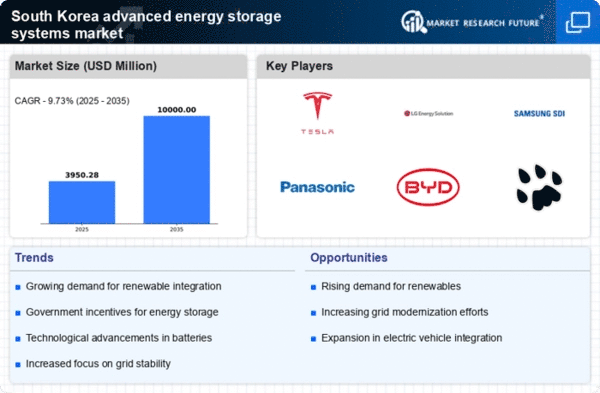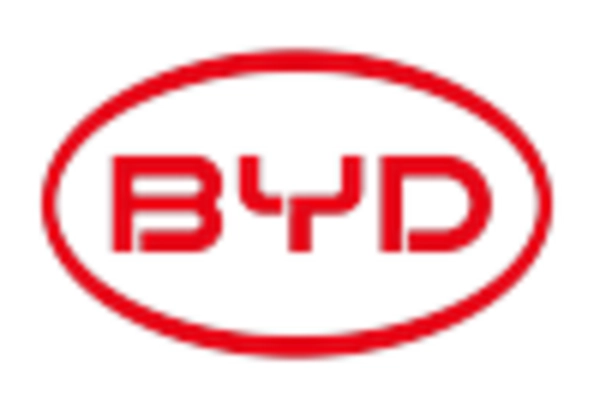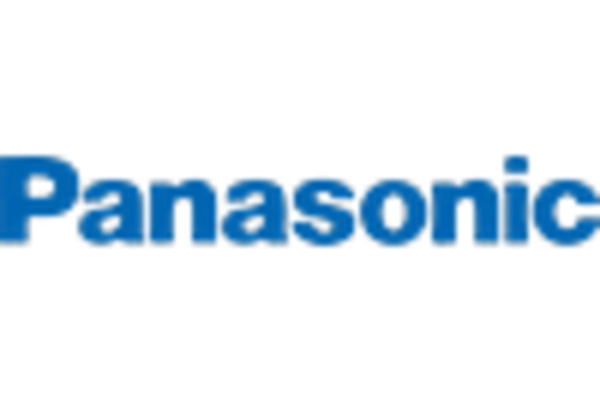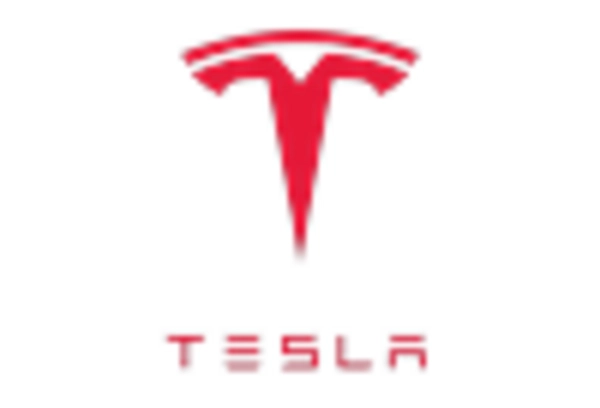Rising Energy Costs
The advanced energy-storage-systems market in South Korea is experiencing a notable surge due to the increasing costs of traditional energy sources. As energy prices rise, consumers and businesses are seeking more cost-effective solutions. Energy storage systems provide a viable alternative, allowing users to store energy during off-peak hours and utilize it when prices are higher. This shift not only enhances energy efficiency but also reduces reliance on expensive grid power. In 2025, energy costs in South Korea are projected to increase by approximately 15%, further driving the demand for advanced energy-storage systems. The market is expected to grow as stakeholders recognize the financial benefits of investing in these technologies, which can lead to substantial savings over time.
Technological Innovation
Technological innovation plays a crucial role in shaping the advanced energy-storage-systems market in South Korea. Continuous advancements in battery technology, such as improvements in lithium-ion and solid-state batteries, are enhancing the efficiency and capacity of energy storage systems. These innovations are making energy storage more accessible and affordable for consumers and businesses alike. In 2025, the market is expected to witness a 25% increase in the adoption of advanced energy-storage systems, driven by these technological breakthroughs. As manufacturers develop more efficient and longer-lasting batteries, the appeal of energy storage solutions grows, leading to increased market penetration and a shift towards more sustainable energy practices.
Environmental Regulations
The advanced energy-storage-systems market is significantly influenced by stringent environmental regulations in South Korea. The government has implemented various policies aimed at reducing carbon emissions and promoting sustainable energy practices. These regulations encourage the adoption of energy storage technologies, as they facilitate the integration of renewable energy sources into the grid. In 2025, it is estimated that compliance with these regulations will drive a 20% increase in the adoption of advanced energy-storage systems. Companies are increasingly investing in these solutions to meet regulatory requirements and enhance their sustainability profiles. This trend not only supports environmental goals but also positions businesses favorably in a market that is progressively leaning towards eco-friendly practices.
Consumer Awareness and Adoption
Consumer awareness regarding the benefits of energy storage is on the rise in South Korea, significantly impacting the advanced energy-storage-systems market. As individuals and businesses become more informed about the advantages of energy storage, such as cost savings and energy independence, the demand for these systems is expected to grow. Educational campaigns and outreach programs are playing a pivotal role in enhancing public understanding. By 2025, it is anticipated that consumer adoption of advanced energy-storage systems will increase by 30%, driven by a greater appreciation for energy management solutions. This growing awareness is likely to foster a more competitive market, encouraging innovation and further advancements in energy storage technologies.
Increased Investment in Renewable Energy
The advanced energy-storage-systems market is benefiting from the heightened investment in renewable energy projects across South Korea. As the country aims to transition to a low-carbon economy, significant funds are being allocated to solar and wind energy initiatives. Energy storage systems are essential for managing the intermittent nature of these renewable sources, ensuring a stable energy supply. In 2025, investments in renewable energy are projected to reach $10 billion, with a substantial portion directed towards integrating advanced energy-storage solutions. This trend not only supports the growth of the energy-storage market but also aligns with national goals for energy independence and sustainability.
















